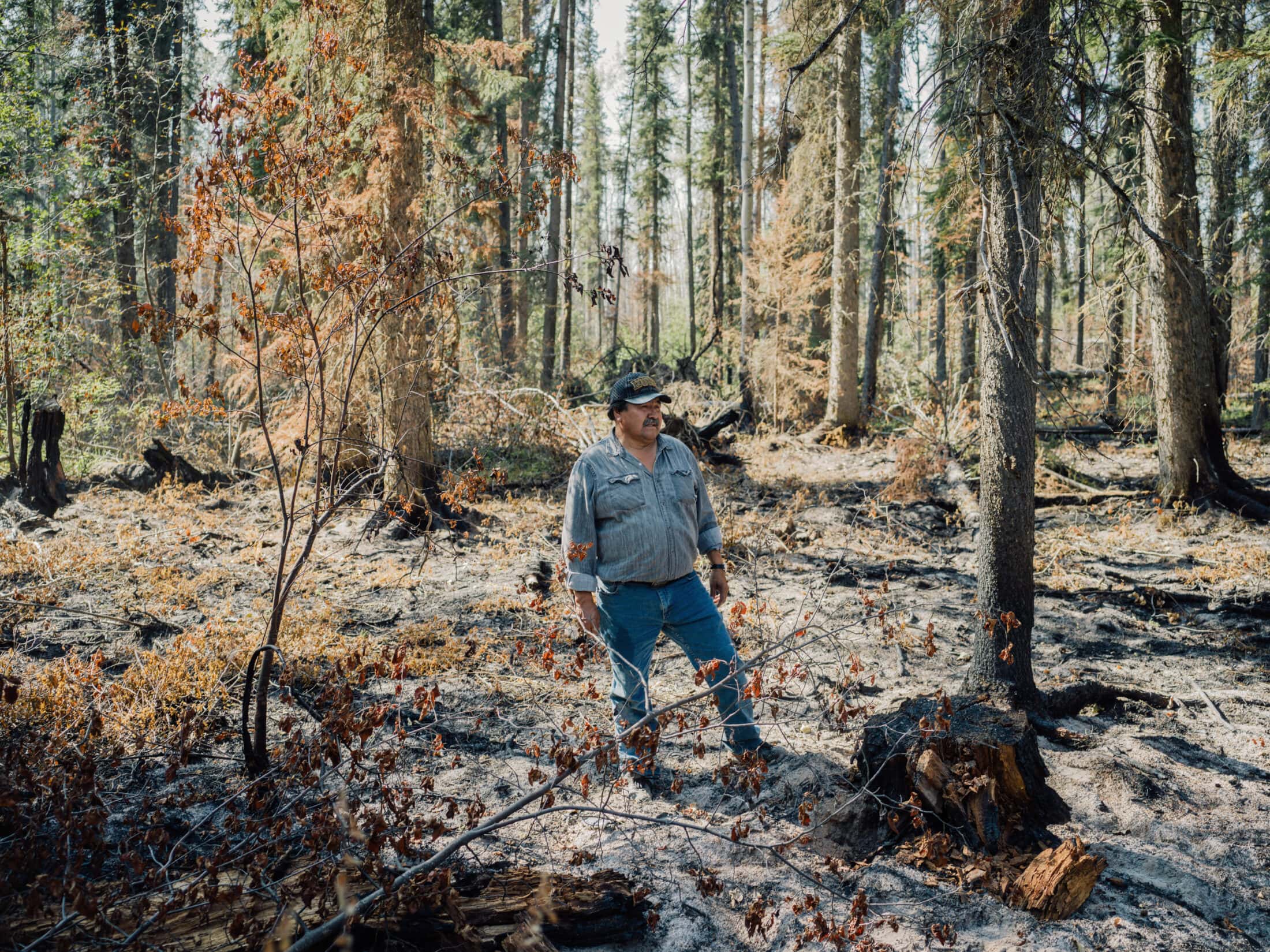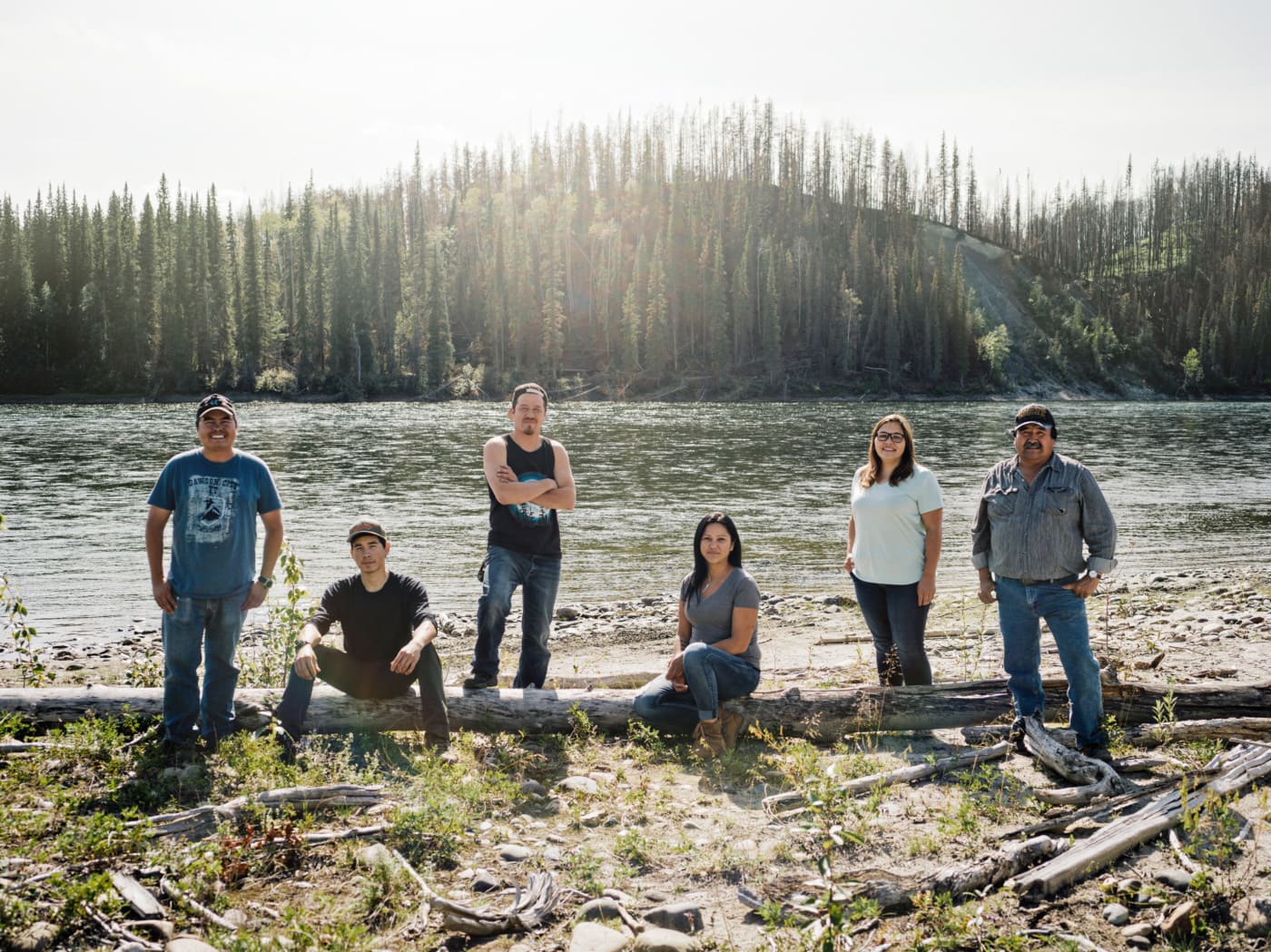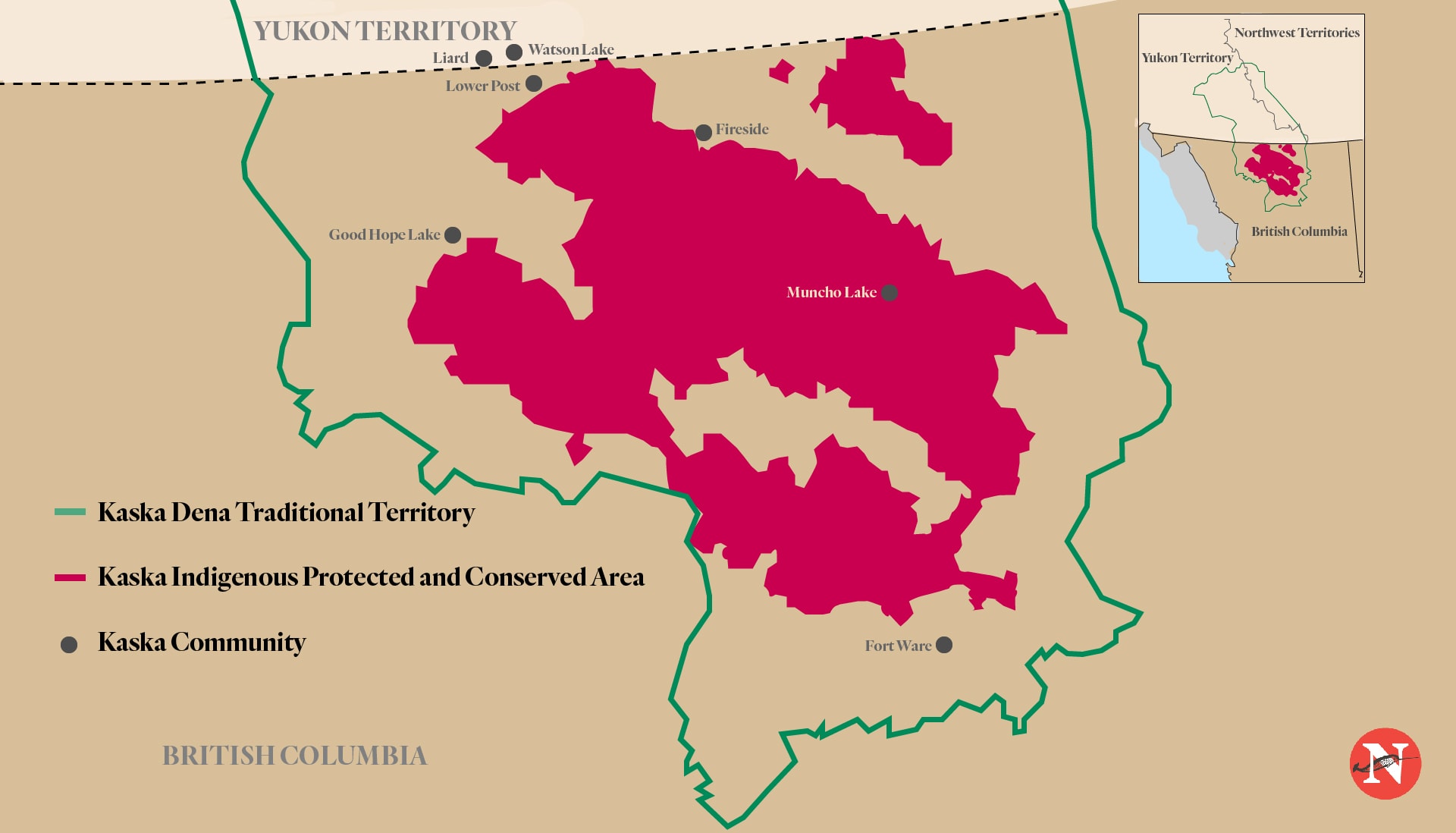The Narwhal | Opinion
November 27, 2020 | Gillian Staveley
It starts with honouring the cultural responsibility to care for the land
Robbie Porter, a Kaska Dena land guardian stands in a patch of forest near the Liard River that he and his fellow guardians discovered burning. Guardians are critical to the management and protection of the Kaska Dena’s traditional territory and proposed Indigenous Protected and Conserved Area. Photo: Taylor Roades / The Narwhal
- Gillian Staveley is a Kaska Dena citizen and the regional coordinator for the Kaska Dena in British Columbia. Read More [Opens The Narwhal]
Two new United Nations reports concluded once again that climate change and biodiversity declines are threatening people’s health, food systems, and prosperity around the globe. But the reports also identified a significant bright spot. Both confirmed that Indigenous Peoples play a vital role in sustaining lands and waters that we all depend on.
The UN specifically highlighted the success of Indigenous Nations in Canada that are creating Indigenous Protected and Conserved Areas and operating Indigenous Guardians programs to care for the land.
We are proud that Indigenous-led conservation is earning global recognition because it works. It helps address the biggest environmental challenges of our time, and it strengthens our communities and revitalizes local economies at the same time.
It is generating the same benefits here in British Columbia. Guardian Watchmen programs along the coast, for instance, help restore salmon and support sustainable tourism. Several of our interior First Nations neighbours are reviving cultural burning practices that reduce wildfire risk and create job opportunities.
Advancing Indigenous-led conservation — including projects like the Kaska Dena’s proposed Indigenous Protected and Conserved Area — can help B.C. build back better.
It starts with honouring the cultural responsibility to care for the land. Our people, the Kaska Dena, have been stewards of our traditional territory for thousands of years. At the heart of our ancestral lands sits the largest intact landscape in B.C. We call it Dene Kʼéh Kusān, which means “Always Will Be There” in our Dena language.
Our Indigenous knowledge as well as recent scientific understandings have made us deeply aware of the changes brought about by climate change.
Six of the eight Kaska land guardians pose by the Liard River. The aftermath of a 2018 forest fire is visible in the background. Photo: Taylor Roades / The Narwhal
These changes have made our stewardship interests and the need to preserve the core of our Traditional Territory the number one priority for our people. This is the priority for future Kaska Dena generations, as well as for the people of B.C. It is an important opportunity for our Kaska Nation and the Province to contribute to global requirements to protect biodiversity and a healthy environment.
The proposed Dene K’éh Kusān Protected Area acts as a bulwark against climate change and biodiversity loss. Its boreal soil stores at least 362 million tonnes of carbon — equivalent to 18 months of Canada’s greenhouse gas emissions. While the rest of B.C. has more species vulnerable to extinction than anywhere in Canada, Dene Kʼéh Kusān sustains an abundance of life, including seven herds of woodland caribou genetically distinct Stone’s sheep, and tens of thousands of songbirds.
Proposed Kaska Indigenous Protected and Conserved Area. Map: Carol Linnitt / The Narwhal
The Kaska want to conserve these lands and grow our economy at the same time. We drew the boundaries of Dene K’éh Kusān so natural resource development activities can continue to prosper. We are building relationships with land users currently operating in the proposed area. Our proposal is generating support among stakeholders because we have a common interest in conserving the lands that sustain our collective livelihood and wellbeing.
Meanwhile, the Kaska Land Guardians will co-manage the protected area, creating jobs grounded in Kaska culture, legal principles, and value systems. Having Kaska Guardians care for a Kaska Protected Area will instill pride in our youth. It will strengthen our Nation and help us heal.
Read more: ‘Serengeti of the north’: the Kaska Dena’s visionary plan to protect a huge swath of B.C. wilderness
The old Lower Post Residential School still stands in one of our communities which is a constant reminder of the decades of trauma and grief our communities have faced. Premier Horgan visited the site and made a plan with the Daylu Dena Council to demolish the building and build a new community facility, a symbol of Kaska resilience.
Reconciliation is about acknowledging and learning from the past but it also about building a better future.
For our people this includes honouring our vision for our land.
By supporting the Kaska’s vision for Dene Kʼéh Kusān and working with us B.C. can demonstrate its commitment to a real partnership with the Kaska Dena. Together, we can help ensure that B.C.’s economic recovery is rooted in equity, reconciliation and sustainability. We can deliver on the promise of B.C.’s visionary Declaration on the Rights of Indigenous Peoples Act, and ensure all our children live in a world with caribou, clean water, a more stable climate, and amongst the cultures of Indigenous Nations.




